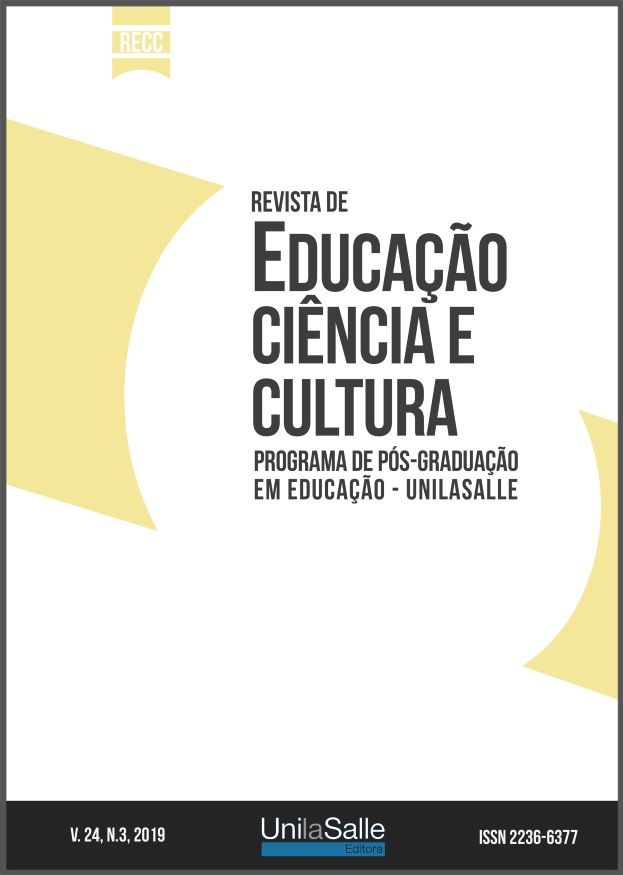School education, tradition and Black-Brazilian orality
DOI:
https://doi.org/10.18316/recc.v24i3.5370Keywords:
School Education, African Tradition and Orality, Black or Brazilian Orality.Abstract
The present text was elaborated from a case study on black-Brazilian education and orality, and consists of an academic-reflective approach on some aspects of black school education; of African traditions and cultures; and of the black-Brazilian orality. This approach is based, in particular, on the following works, with their respective authors: Traditional Culture Banto, by Raul Ruiz de Asúa Altuna; The Place of Culture, by Homi Kuane Bhabha; Living Tradition, by Hampâté Bâ; and, Public Policies of Affirmative Actions: Education and Abá (thought) Black-Brazilian Diásporico, by Jorge Manoel Adão. At the same time we find that oral tradition is a constituent part of the formative matrix of Brazilian culture, in its artistic, festive, religious and popular expressions; we realize that, from the indicators, we have an educational system still not attractive to pardos and blacks for not aggregating their cultural identity and for not recognizing the singularities of this specific group. Singularities such as: early entry into the labor market; the lack of a social quality in public education, in which most of them have access; and to a programmatic content that does not recognize the cultural universe, from its roots, of the blacks and that does not encourage the construction of an identity knowledge. As well as racism and prejudice in the school environment and in the classroom, which consequently translates into avoidance and discontinuity of studies and lack of references, perspectives for the achievement of a trajectory of personal, academic and professional success.
Downloads
Published
Issue
Section
License
Authors must submit their manuscripts to be published in this journal agree with the following terms:Authors maintain the copy rights and concede to the journal the right of first publication, with the paper simultaneously licensed under the License Creative Commons attribution that permits the sharing of the paper with recognition of authorship and initial publication in this journal.
Since the articles are presented in this journal of public access, they are of free use, with their own attributions for educational and non-commercial purposes.
The Periodic Journal of Education, Science and Culture in http://www.revistas.unilasalle.edu.br/index.php/Educacao was licensed with a Creative Commons - Attribution - Noncommercial 3.0 Not Adapted.


